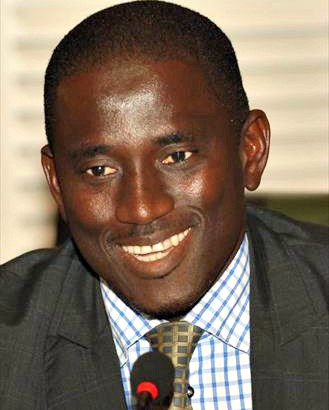I greet you my dear brother, Dibba Junior, on this blessed morning of the day of Eid we fondly call ‘Sunkari Saloe’ in Mandinka. Shall I not then proceed to do for you the customary prayer our grandmother the late Mba Jankay Njie of Farafenni would do for me during her blessed life on earth: “May Allah bless you with long life, good health expanded provision and a good ending by the honour of the late Bulli of Marchi Kunda.”
Junior, I wish to explain in this epistle the concept (nay, the reality) of the Arabic term ‘barakah’ that is used in the same vein in Mandinka. The concept of barakah has long fascinated me and I have been doing some research about it of late. I know you would relate to my desire for increased barakah in life because you and I come from a family that appreciates and craves barakah more than anything else; to the extent that the response of our parents and community elders in appreciation of any service we render is in the pregnant Mandinka pronouncement-cum-prayer ‘a barakah’.
I know you have heard your father (my uncle) say about certain individuals that ‘nying barakah ta leh’ and also the reverse about people that seem to be devoid of this blessing. But what is barakah and how can you attract or increase it in your life?
As general introduction, the term ‘barakah’ is “the attachment of Divine goodness to a thing, so if it occurs in something little, it increases it. And if it occurs in something much it benefits.”
One of my revered sacred teachers has this to say about barakah: “Barakah is an invisible wave or field like radiation … But unlike radiation, barakah, brings benefit at every level of existence the longer you are in contact with it.” And the foregoing is very deep thought indeed!
Now how about this explanation of the concept of barakah by the Imam Al-Haifa Hydara about 25 years ago during a Gamo at our other hometown of Badibou Jajari. He explains the difference between a cow and a dog. When a dog gives birth, the puppies come in groups of 6, 8 or even more at every time that the dog bears her children. In contradistinction is the cow who gives birth to one or two calves at a time. Now throughout the country you see hundreds of herds of cattle. But where in the world have you seen a ‘herd’/pack of dogs? His answer to this conundrum is in one word: Barakah!
So much of theory about this concept of blessednes my junior brother! How does one attract/grow barakah in ones life? This is the question that needs to be answered so that this missive could be of much barakah to you and those who would want to gain practical benefit from it.
There are many ways to attract baraqa in your life, among them these: Live by the divine injunction “wa bil waalidaini insaanan” (and be kind to your parents” as taught in the Quran; and before that, in the Bible: “Honor your father and your mother, that your days may be long in the land which the Lord your God gives you.” (Exodus, 20:12). This first step here, will open the doors for that divine goodness called barakah to manifest itself and grow in your life.
Turn your aspiration and frustrations into supplications, as author Muhammed Harris would put it. Praying about these issues rather than worrying and dissipating energy about them would turn them into sources of barakah.
Now I have to stop here even though I can easily give you 99 ways and means of attracting barakah in your life; but I will stop here because good things are not supposed to come on the cheap. How much are you willing to pay to gain these treasures? Indeed my favourite singer-songwriter and philosophical genius Jaliba Kuyatehnis right: luck is writ with ones birth; prayers are to be sought; but barakah is supposed to be bought.
Make no mistake about the barakah being “bought” as Jaliba would put it. There are so many nuances to the word he used in Mandinka “sang-taa”. It doesn’t have to be a monetary transaction. It broadly means something that is to be EARNED. Here I stop young man while you ruminate on this one.
Eid Mubarak. Alamaa n-na sali siyaa la, Waalimang!
Momodou Sabally
The Gambia’s Pen
International speaker and author, Momodou Sabally is Former Presidential Affairs and Secretary General in The Gambia.




